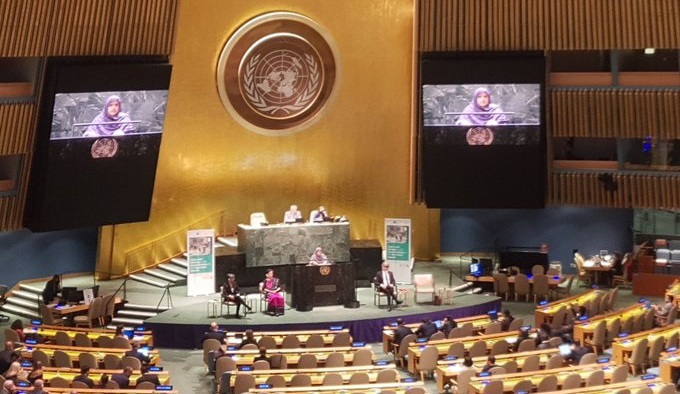
Redesigning the financial architecture
Preface
Most citizens in rich countries think that a substantial proportion of the taxes they pay flow to poor countries in the form of aid, cheap loans, trade benefits and the frequently talked about debt cancellations. If poverty still persists, it must somehow be the fault of the poor people themselves, due to laziness, ignorance or some effect of the tropical climate, or else their inefficient and corrupt governments are to blame.
Meanwhile, from their perspective, citizens in Southern countries see money flowing out in the form of debt interest payments, unfair trade relations and massive profits siphoned out of their economies by foreign corporations. Investment return rates of 25% to 30% a year are not uncommon in Africa!
Invisible to citizens in the North or the South, subterranean channels divert huge flows of money to tax havens. The nets of the revenue services catch the small fish easily, but let the sharks through untouched. The two global intergovernmental institutions that are supposed to preside over world finances and regulate their flow do the opposite of what is expected from them: instead of channelling money towards development, the World Bank receives more from developing countries than what it disburses to them; instead of ensuring global financial stability, the International Monetary Fund is now rooting for a financial crisis to erupt or it will not have enough business to pay for its own staff.
The current global financial architecture thus looks like the impossible building designed by MC Escher in his famous “Waterfall” etching, where the water that seems to be falling actually flows up, against all rules of logic.
To put some order in this impossible architecture, in March 2002 the world’s leaders met in Monterrey, Mexico, to discuss “Financing for Development” at the summit level. Shortly before, the World Trade Organization had launched a “development round” of trade negotiations in Doha, the capital of Qatar. In the immediate aftermath of the 9/11 attacks on the US that shook the world, these conferences promised a new blueprint for the world economy. The reformed trading and financial systems would enable the poor to work their way out of poverty. With the help of some additional aid and debt cancellation for the poorest countries, enough social progress would be achieved by 2015 to successfully
meet the set of basic social goals agreed by those same leaders in 2000 in order to “uphold the principles of human dignity, equality and equity at the global level.” (1)
The Monterrey Consensus of 2002 states that “every country is responsible for its own development, and it is crucial for development strategies to be owned Redesigning the financial architecture by individual developing countries. However,
development requires much more than aid. [It] implies joint efforts to address domestic resource mobilization, trade issues, debt problems and the reform of the international financial architecture.” (2)
Almost five years have passed since then, and Social Watch feels those commitments are too important to be left ignored. Since 1996 the Social Watch coalitions around the world have reported yearly on the issues of poverty and gender and on the government policies that affect for better or worse the fate of the world’s vulnerable and
unprivileged majorities. This Social Watch 2006 report looks at the means for putting development policies into action.
Development happens at the local level, and it is a national responsibility. The national Social Watch coalitions, looking at their own countries from within, find a variety of obstacles and reasons why the means are not there where they are needed. Those findings are the essence of this report, as they provide the bottom-up perspective of the people working with the grassroots.
This is not a commissioned report. Each national Social Watch chapter is made up by organizations and movements that are active year-round on social development issues. They come together once a year to assess government actions and outcomes. Their findings are not intended as pure research but are used to draw the attention of the authorities to these issues and help shape better pro-poor and pro-women policies.
Thus, the priorities and emphasis of each country report were decided by the reporting organizations themselves. To make the report possible, each group raises its own funds, most of which are invested in consulting with social movements to gather evidence and validate their findings. They do not shy away from criticizing national authorities,
policies, elites or governance systems whenever they feel it is necessary. And the voicing of critical views helps strengthen democratic processes. But even when the reports find that much can (and needs to) improve at home, they also point to obvious international constraints that cannot be solved at the country level.
The international section of the report, informed by the work of key NGO networks, throws light on those issues. Some of them, like aid, trade and debt, have been the subject of massive international campaigns. Others, like capital flight, tax evasion, fraudulent intra-firm trading and the very governance of the international financial institutions have yet to filter down from the debate of experts to the awareness of the citizens in the streets. But they all form part of a package, an architecture, that badly needs to be redesigned.
The reason for such a change emerges with dramatic clarity from the careful tracking of social indicators around the world that forms the statistics section of the report. It is accurate, but not enough, to say that at present rates of progress, the Millennium Development Goals will not be achieved by the year 2015. What should shame the world
leaders who agreed on those goals is the evidence that on whole continents it will take one or two centuries to achieve them!
These trends can be reversed. This report offers ideas as to how it can be done. They are not particularly original or revolutionary. It is basic common sense that taxes should be paid by all, and that those who have more and earn more should pay more. But in a globalized economy this can only be achieved if governments coordinate their efforts.
Yes, a new UN summit on finances might be necessary for that. Why would it succeed when so many other conferences have failed? Because the present architecture is “impossible” both in the sense of impractical and in the sense of intolerable.
Roberto Bissio
Social Watch International Secretariat
Notes:
(1) United Nations Millennium Declaration, Resolution A/55/2 adopted by the General Assembly in September 2000.
Social Watch / 10
(2) United Nations, Report of the International Conference on Financing for Development; Monterrey, Mexico, 18-22 March 2002 (A/CONF.198/11).
Social Watch publishes a yearly report in several languages. The reports can be ordered or downloaded free of charge, here: http://www.socialwatch.org/en/informeImpreso/tablaDeContenidos2006.htm.
For more information, please visit the site of Social Watch: http://www.socialwatch.org


